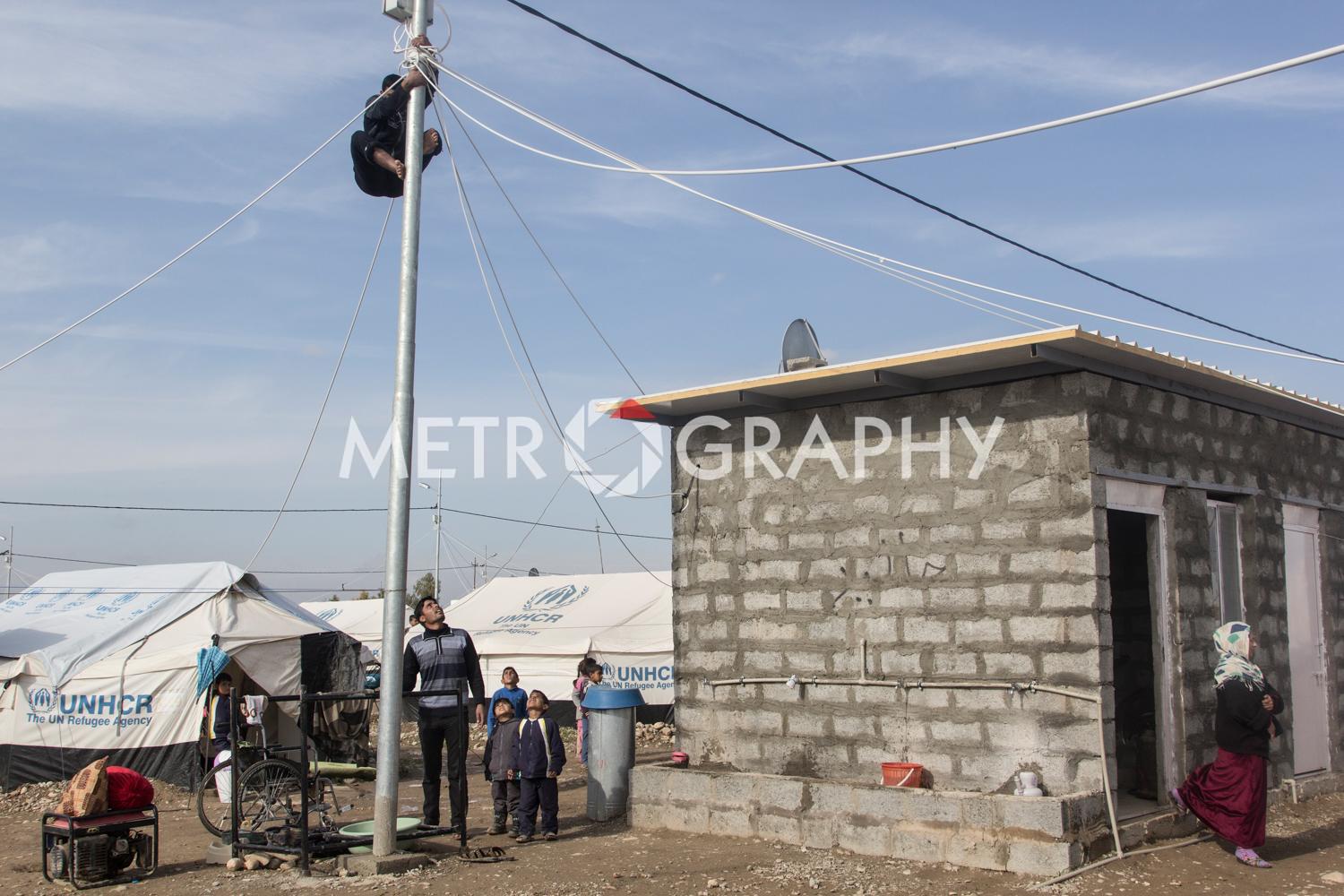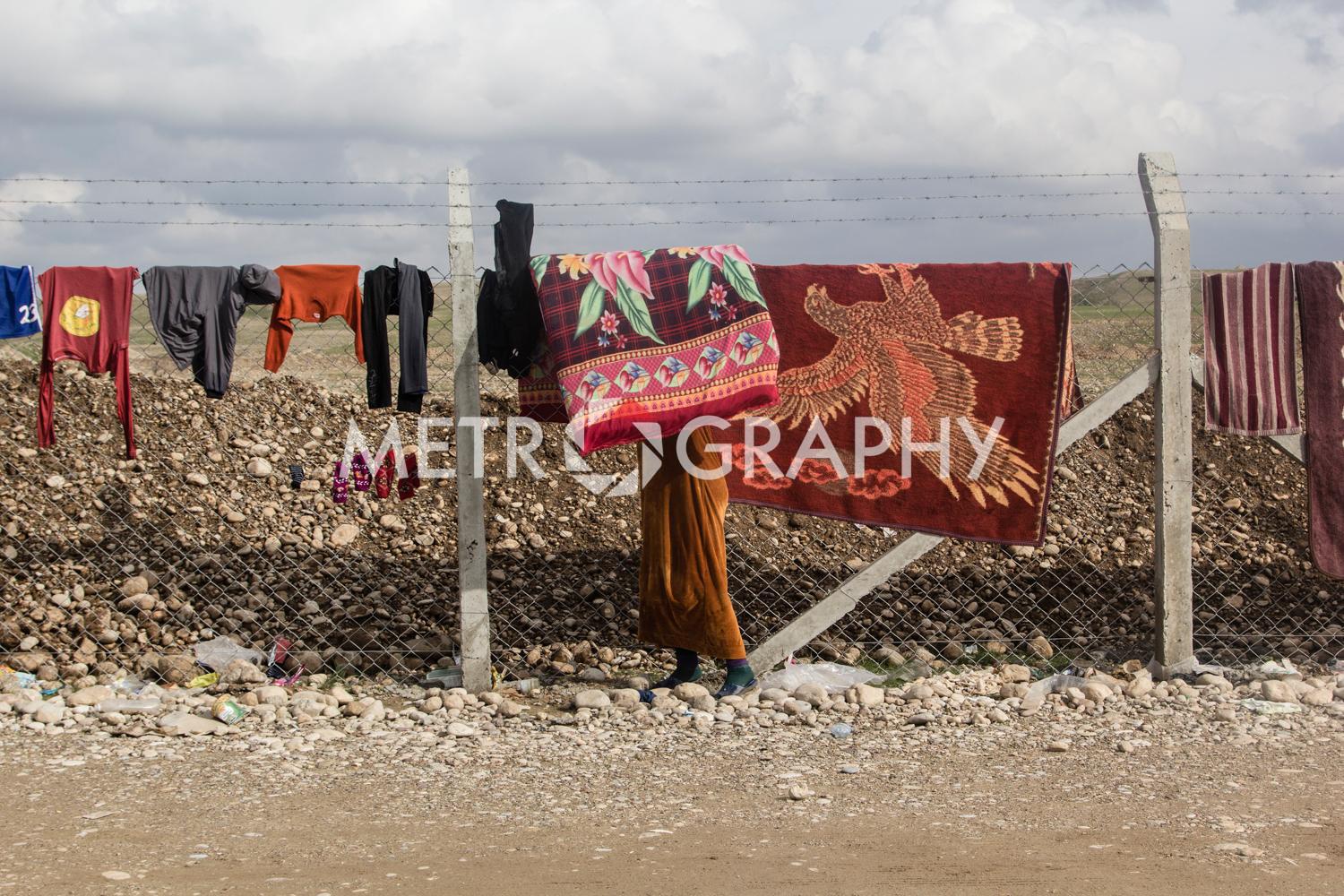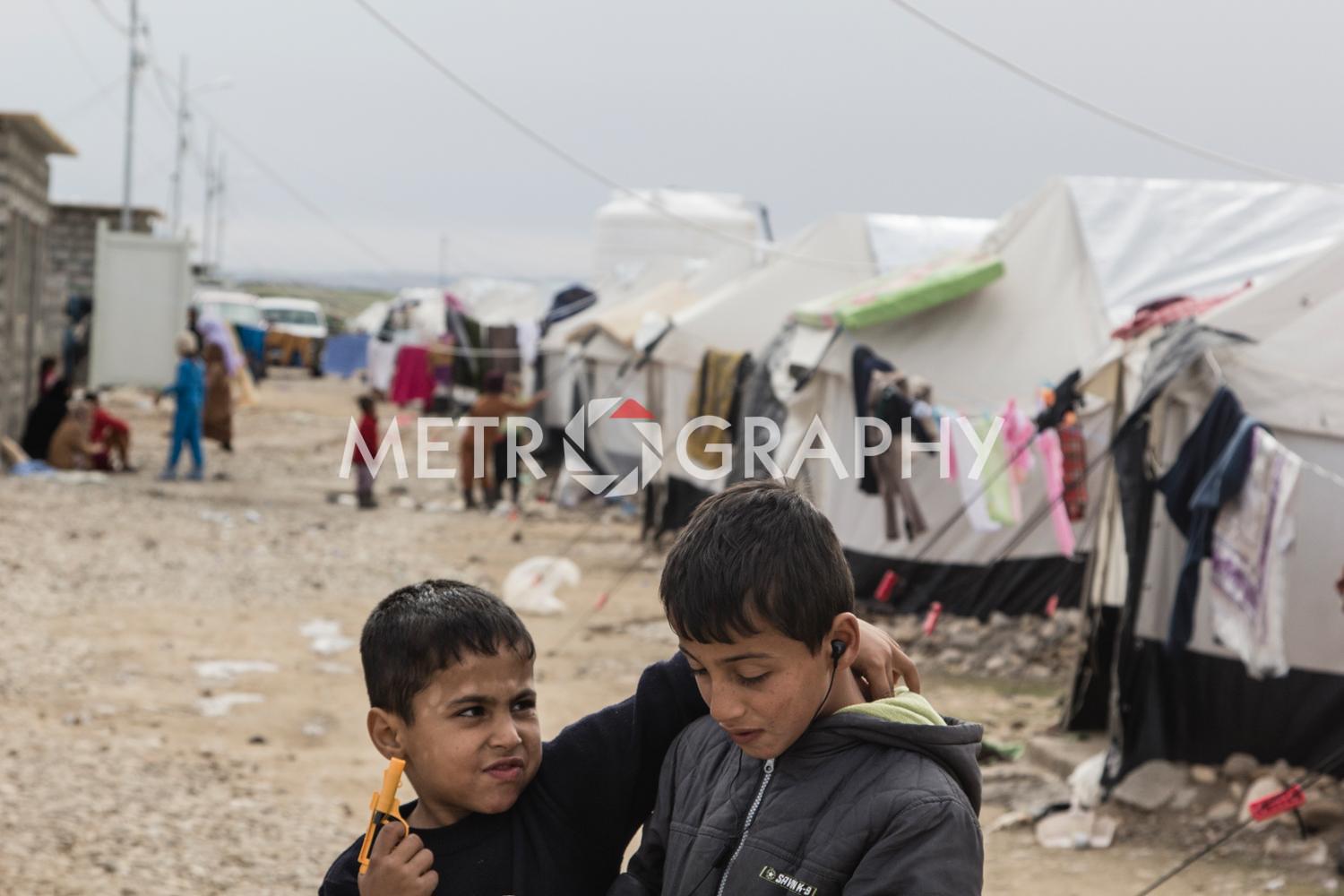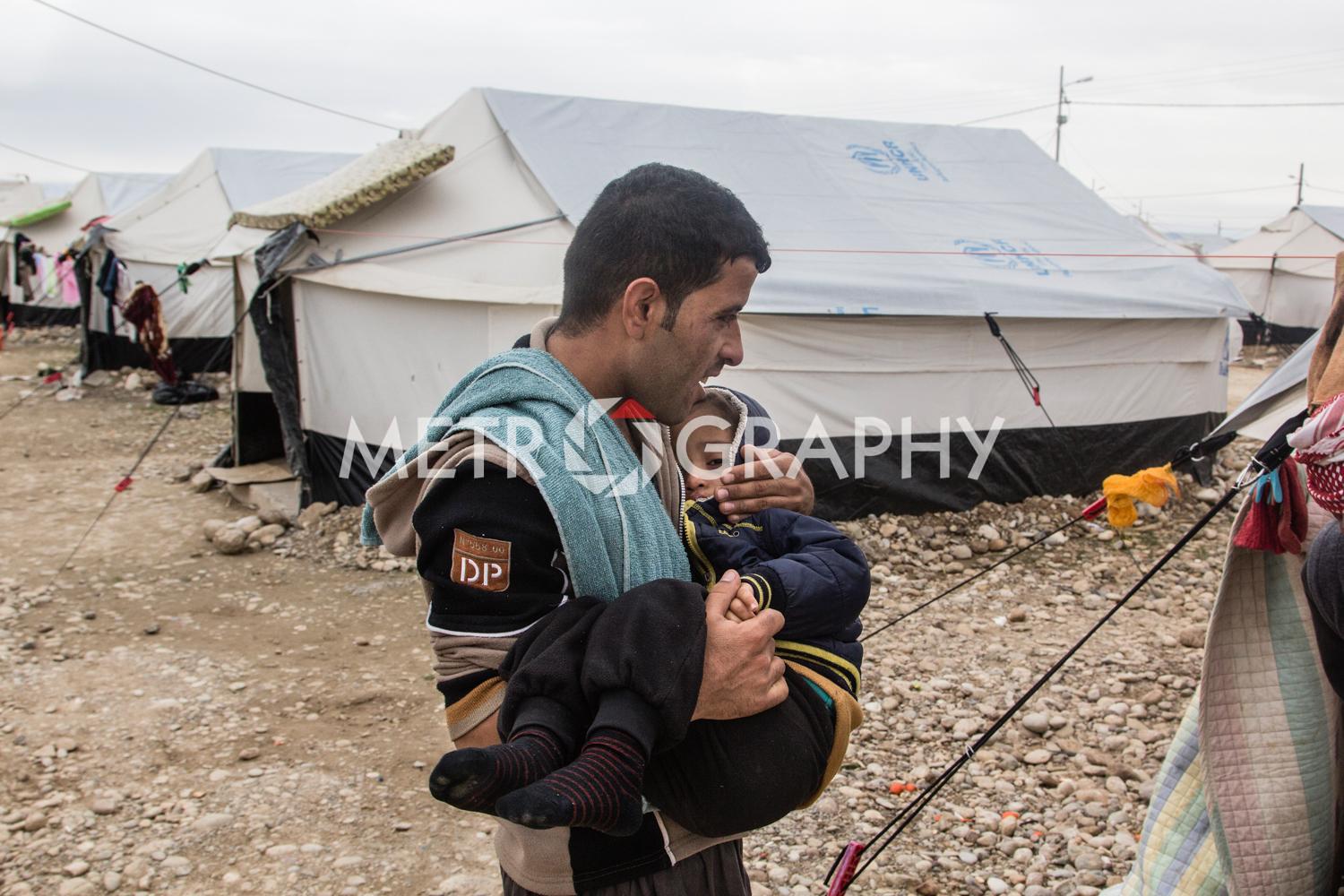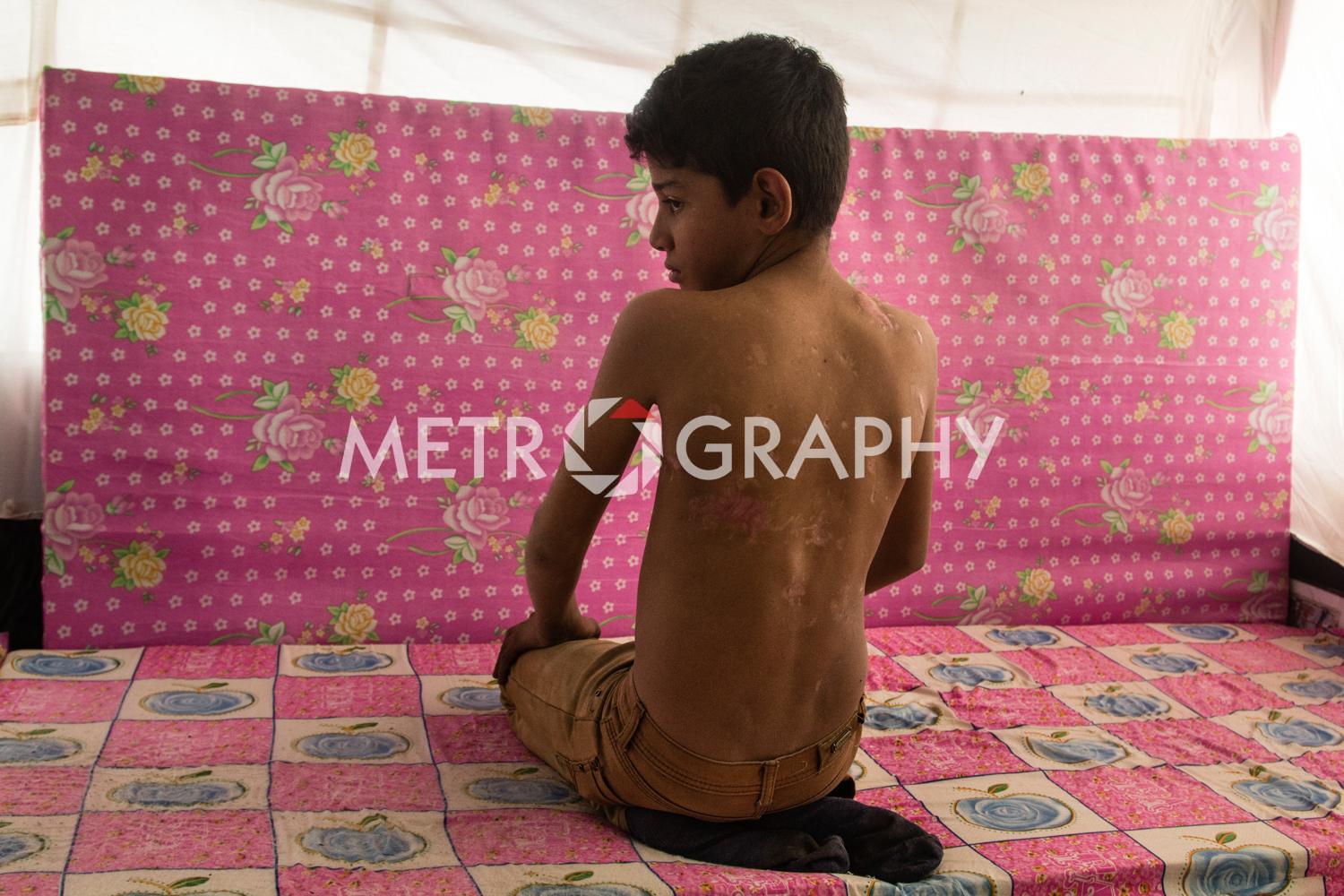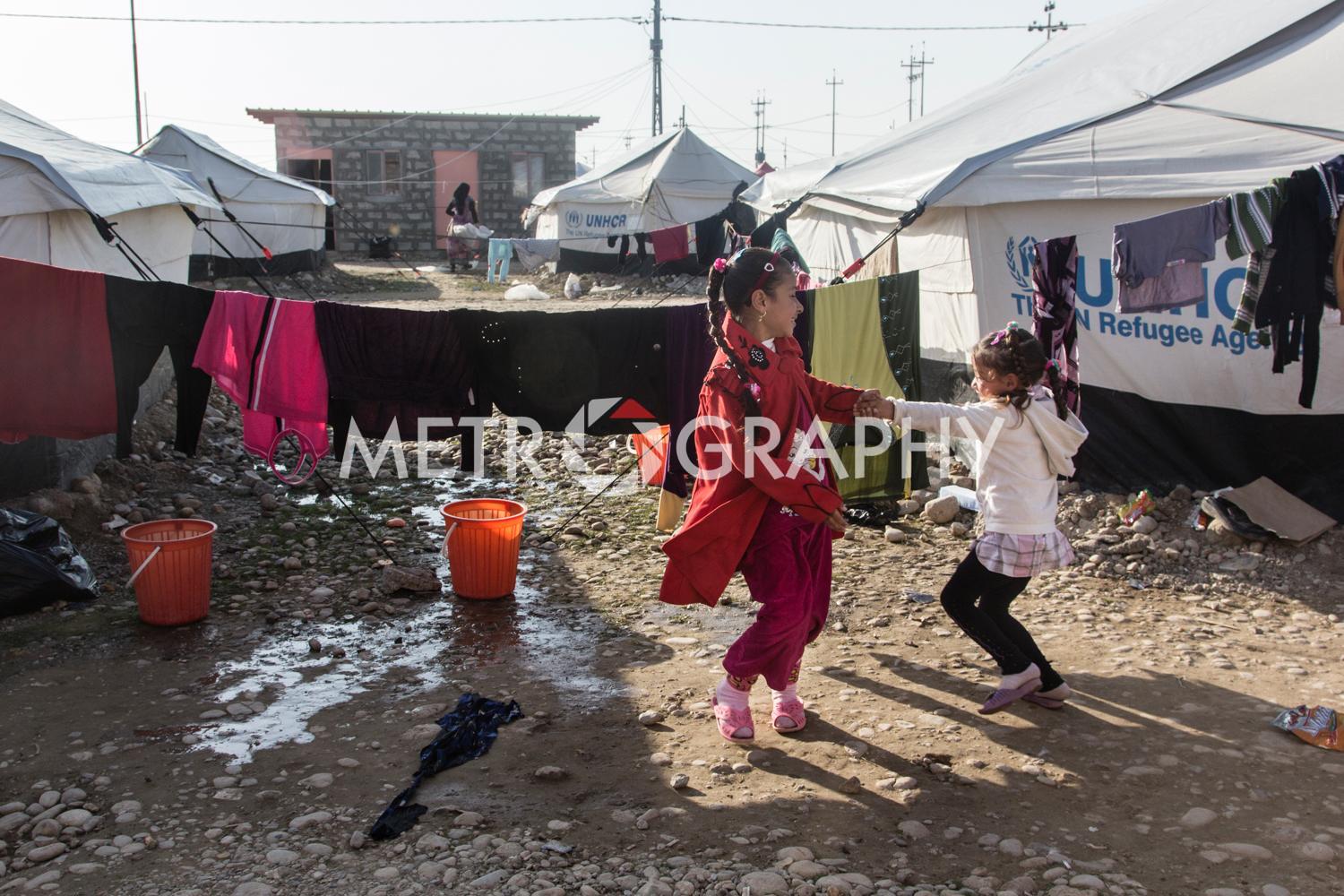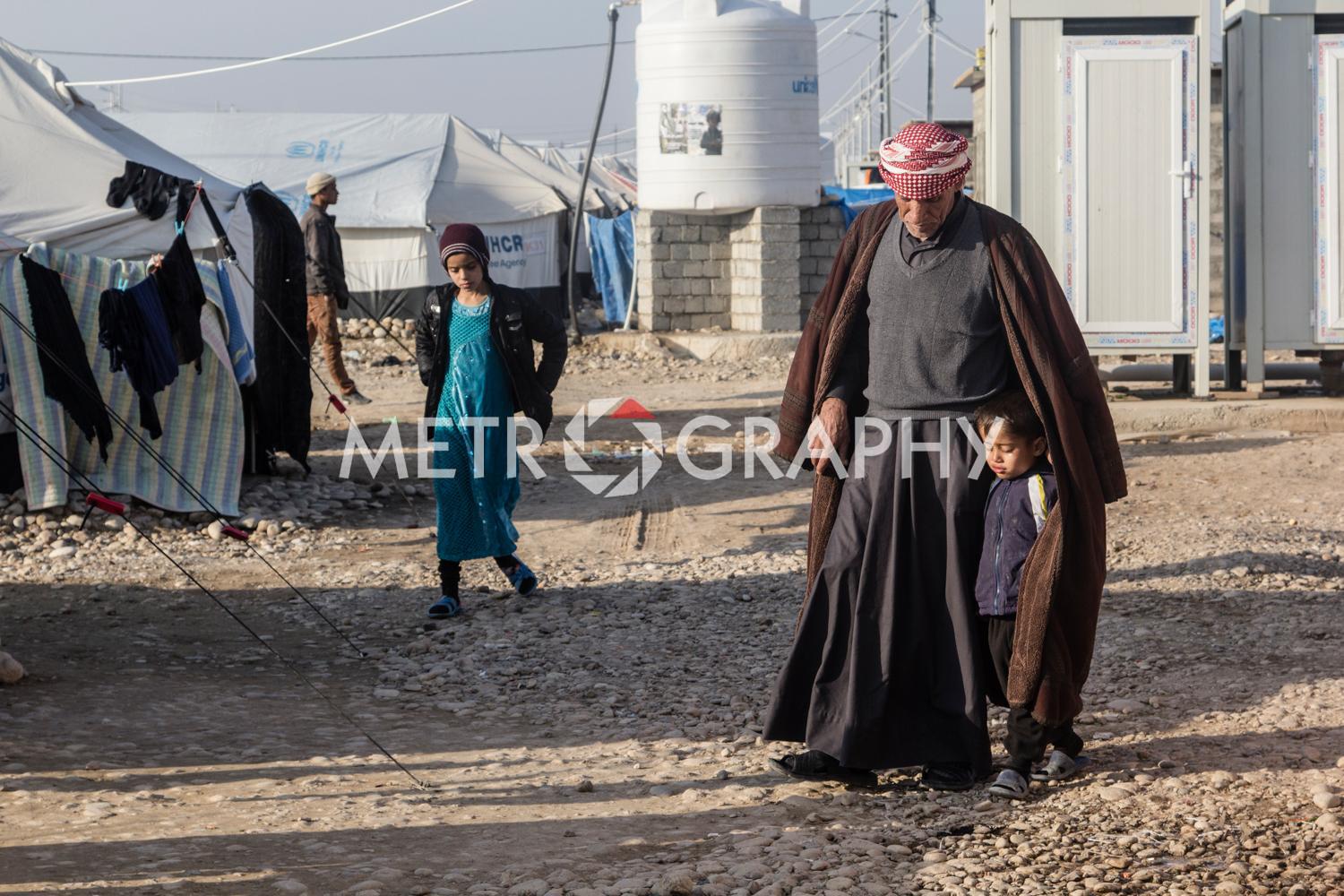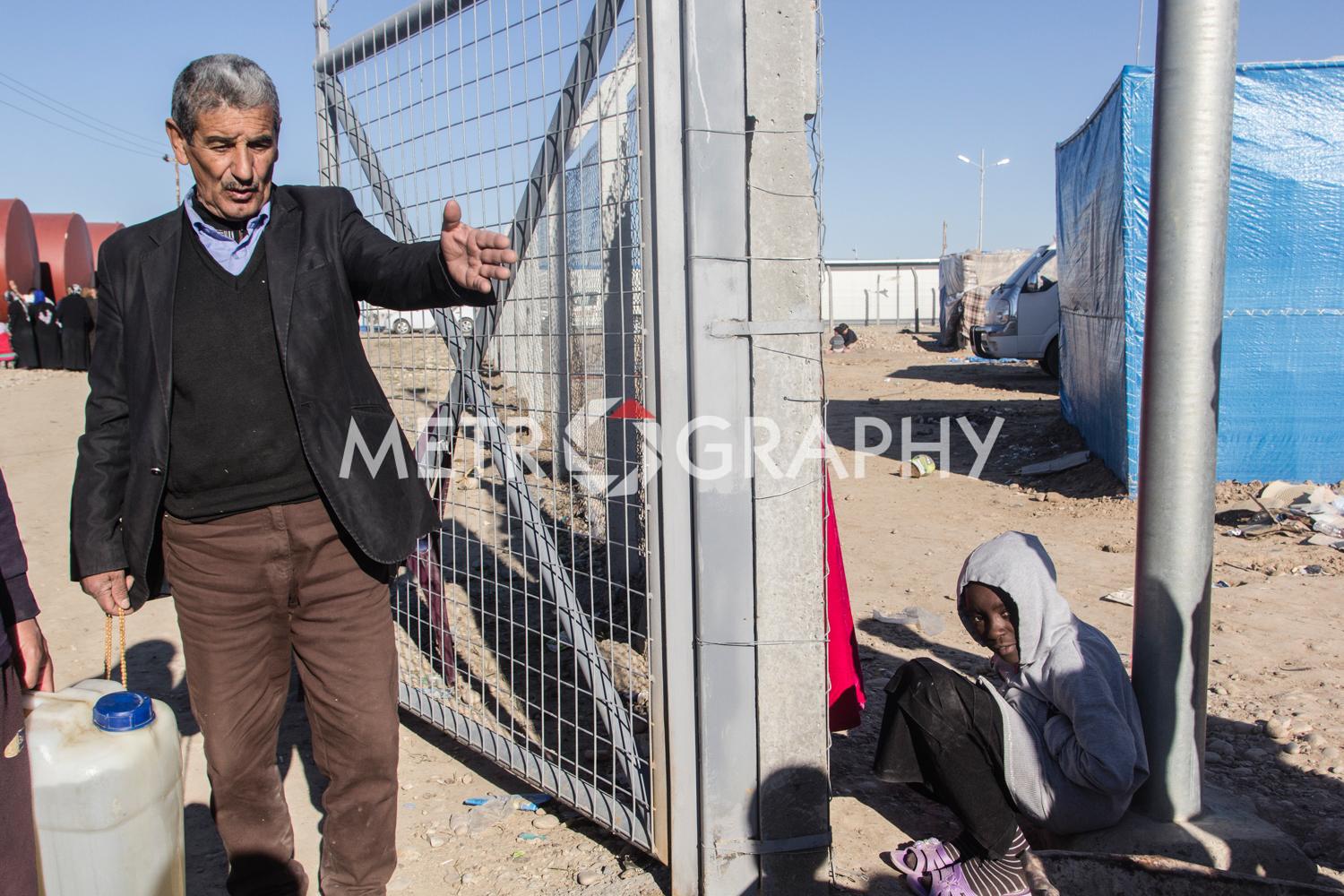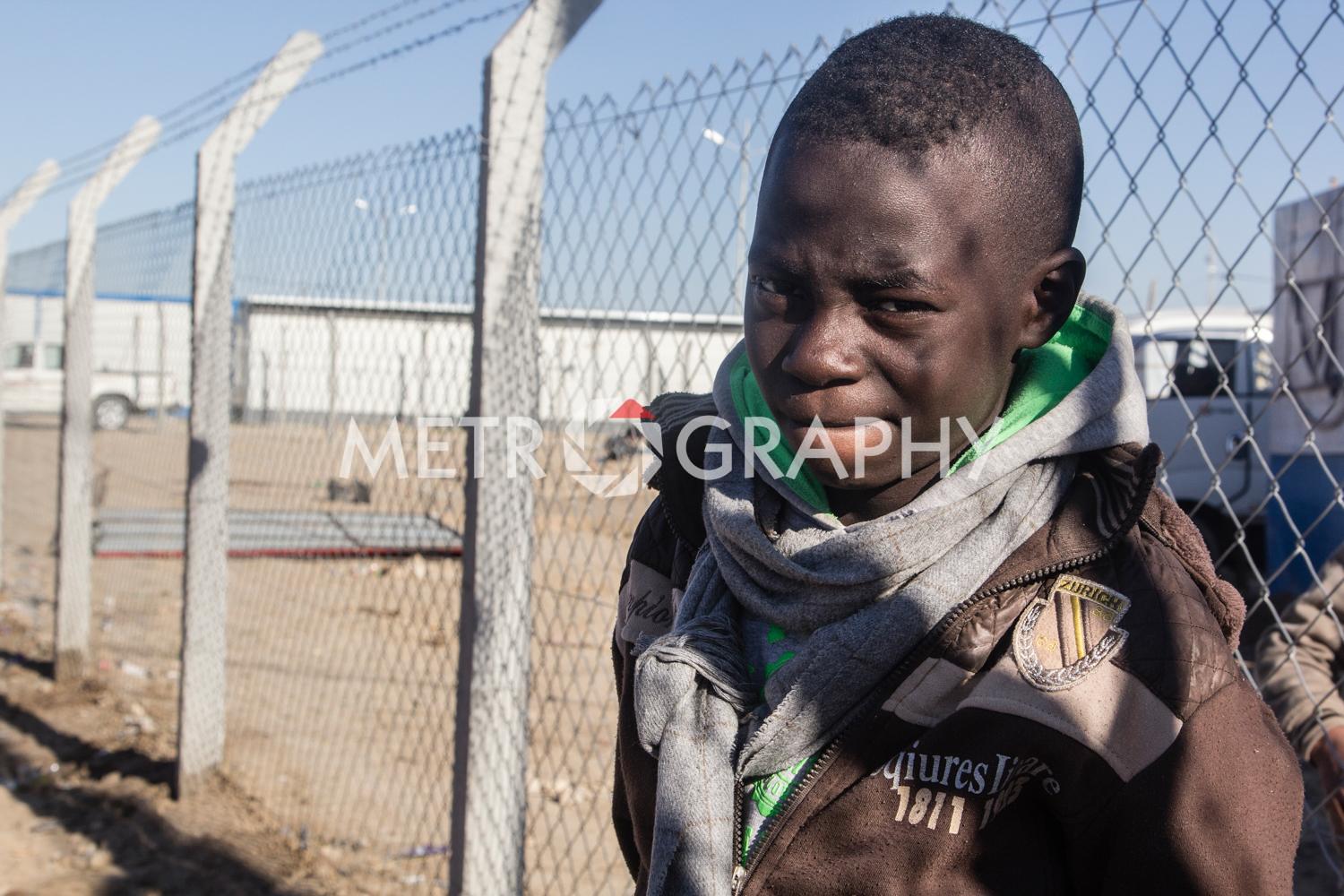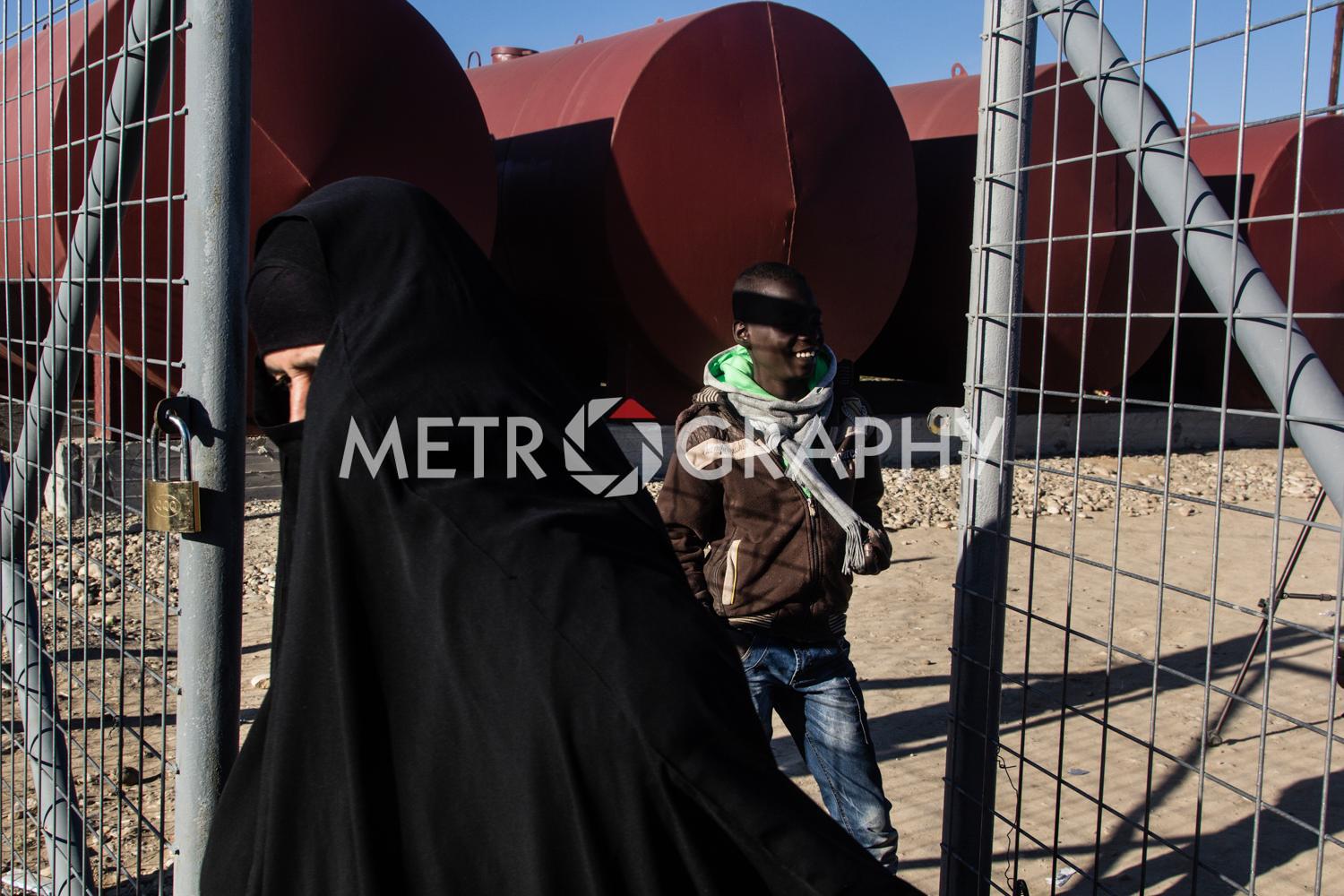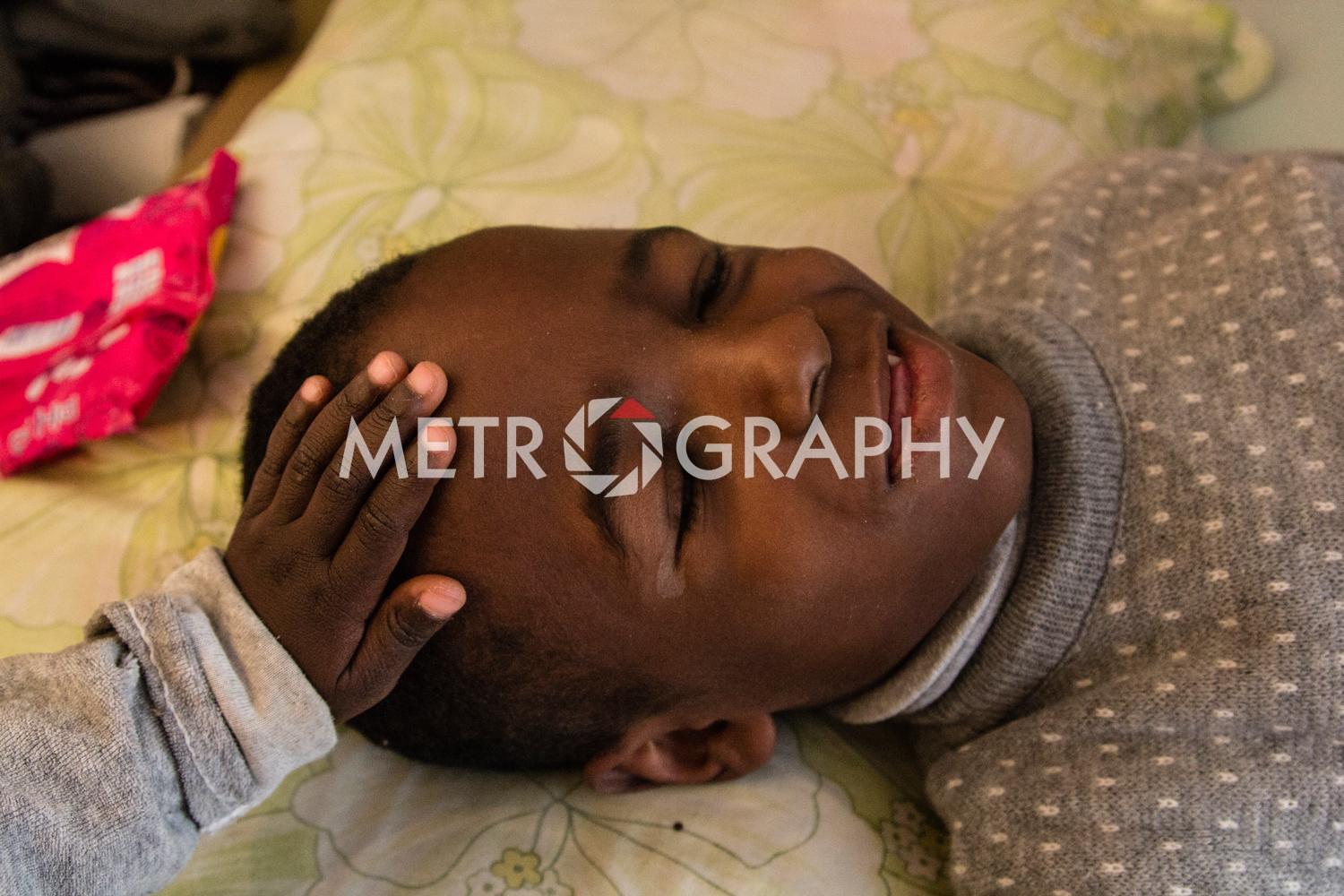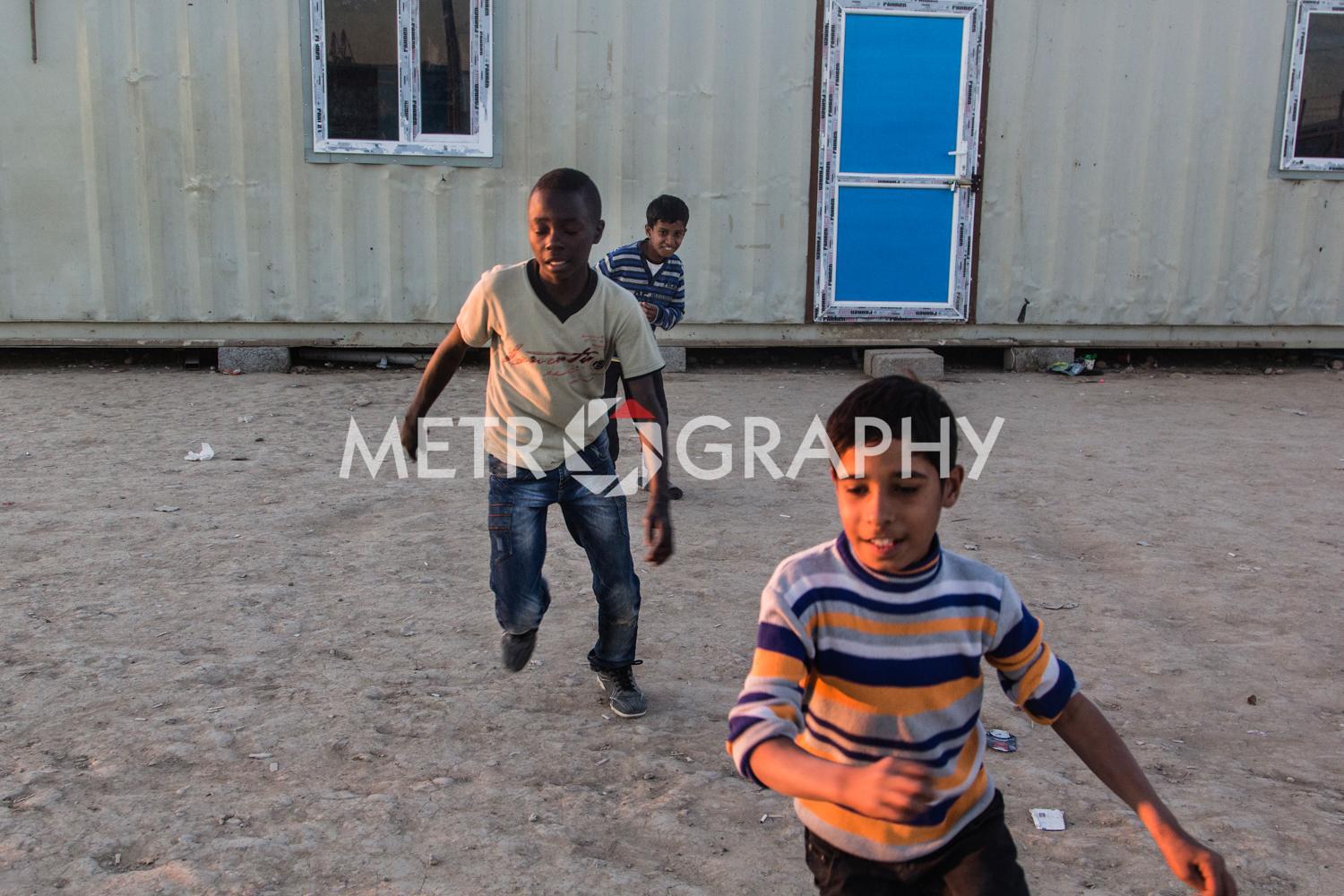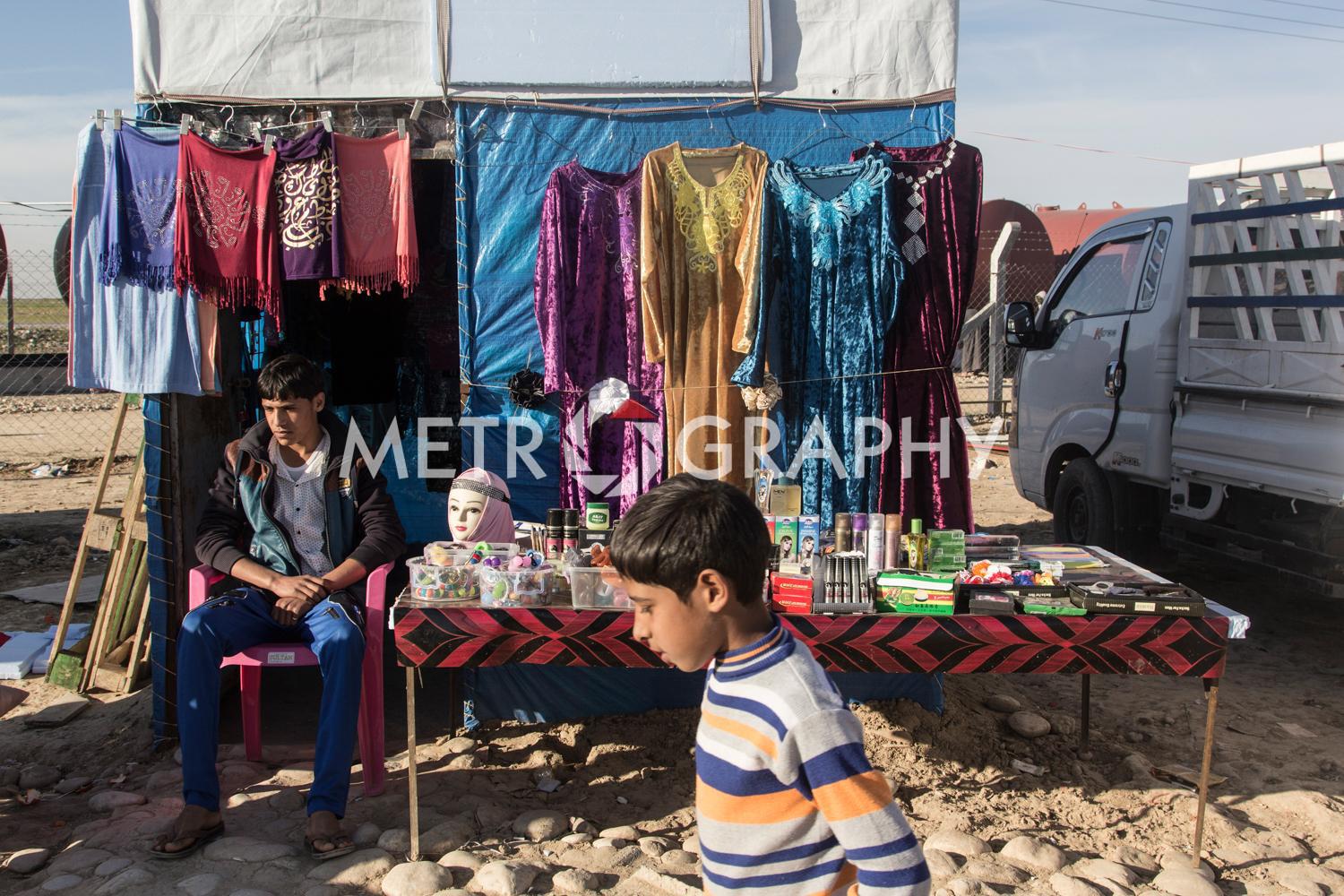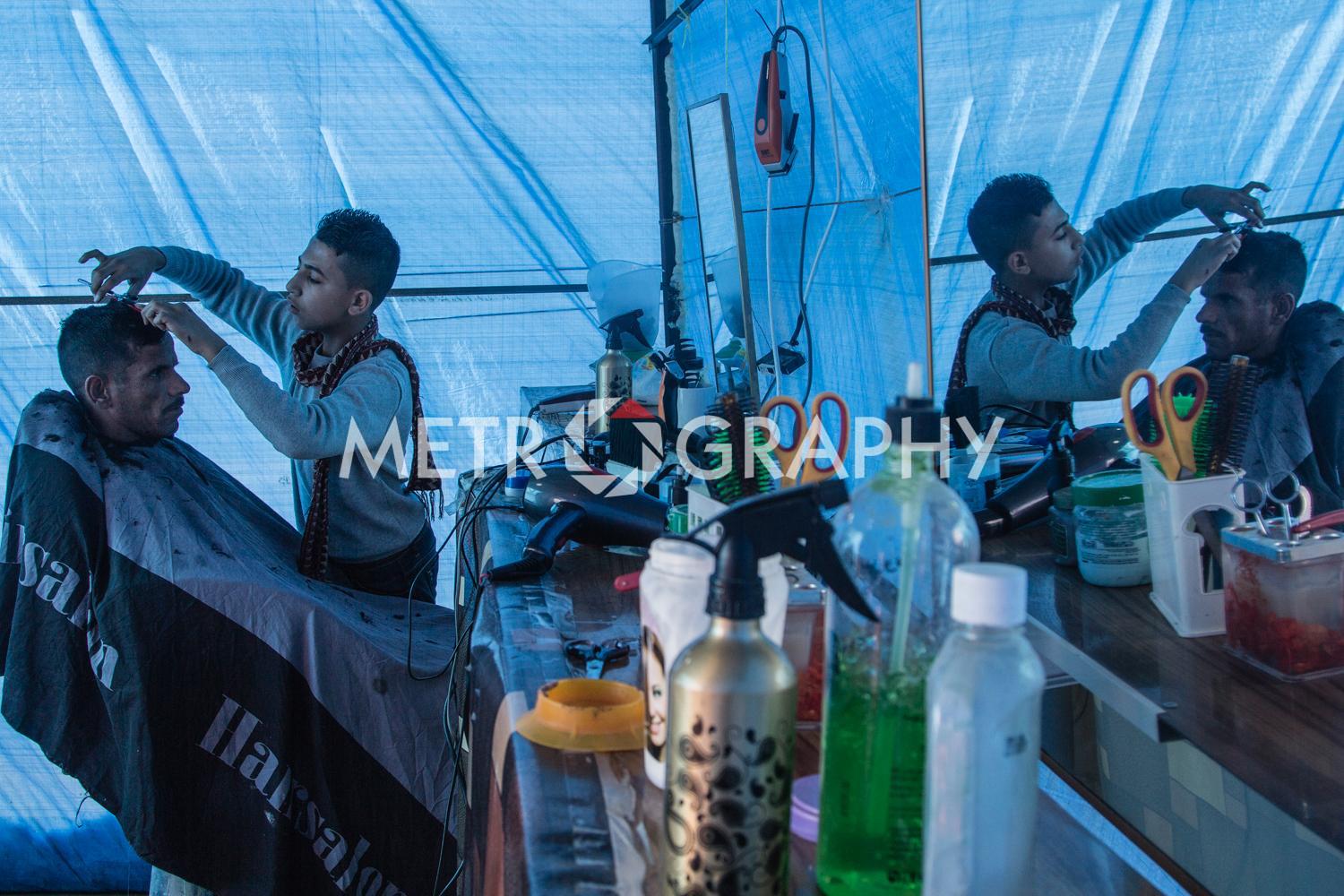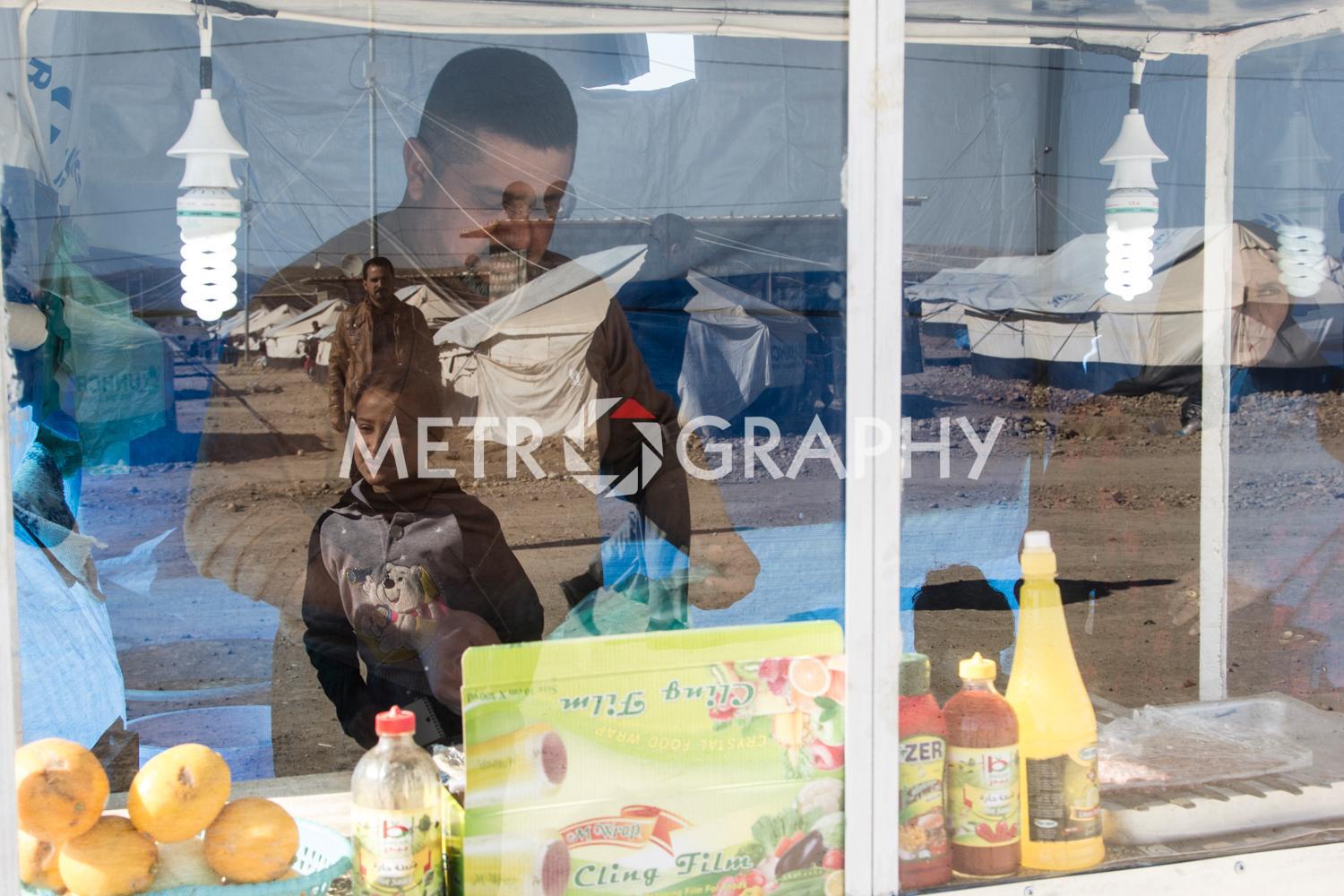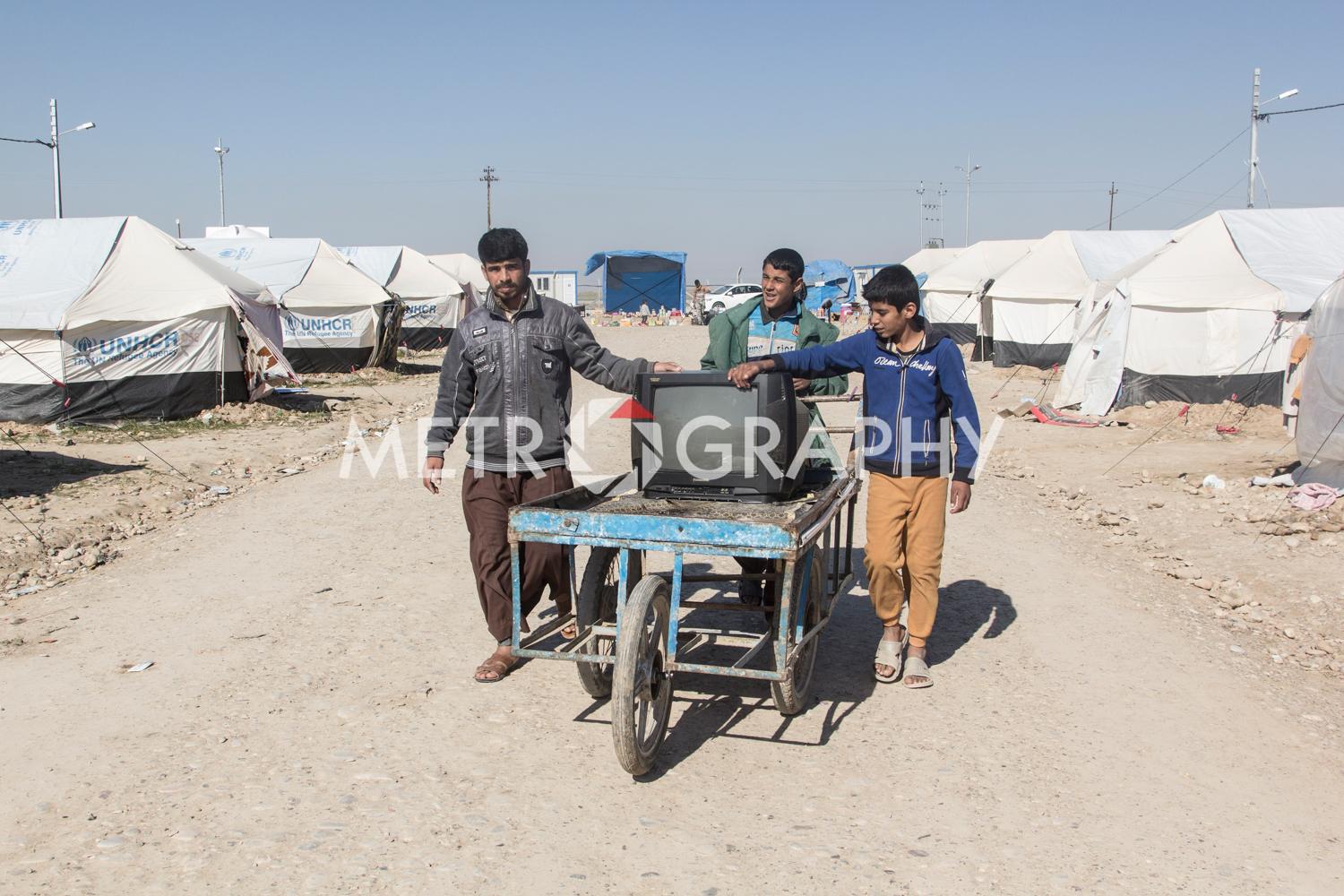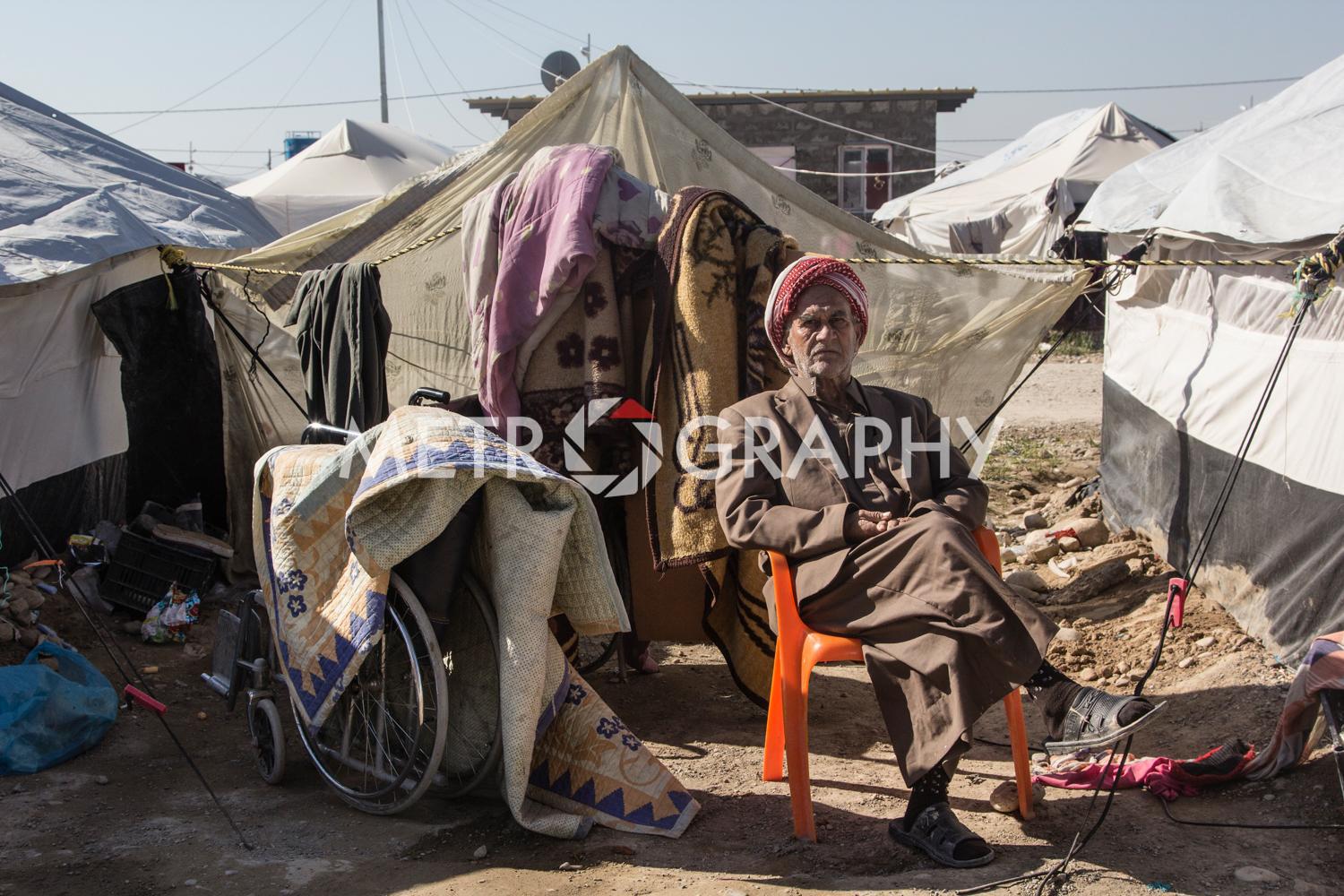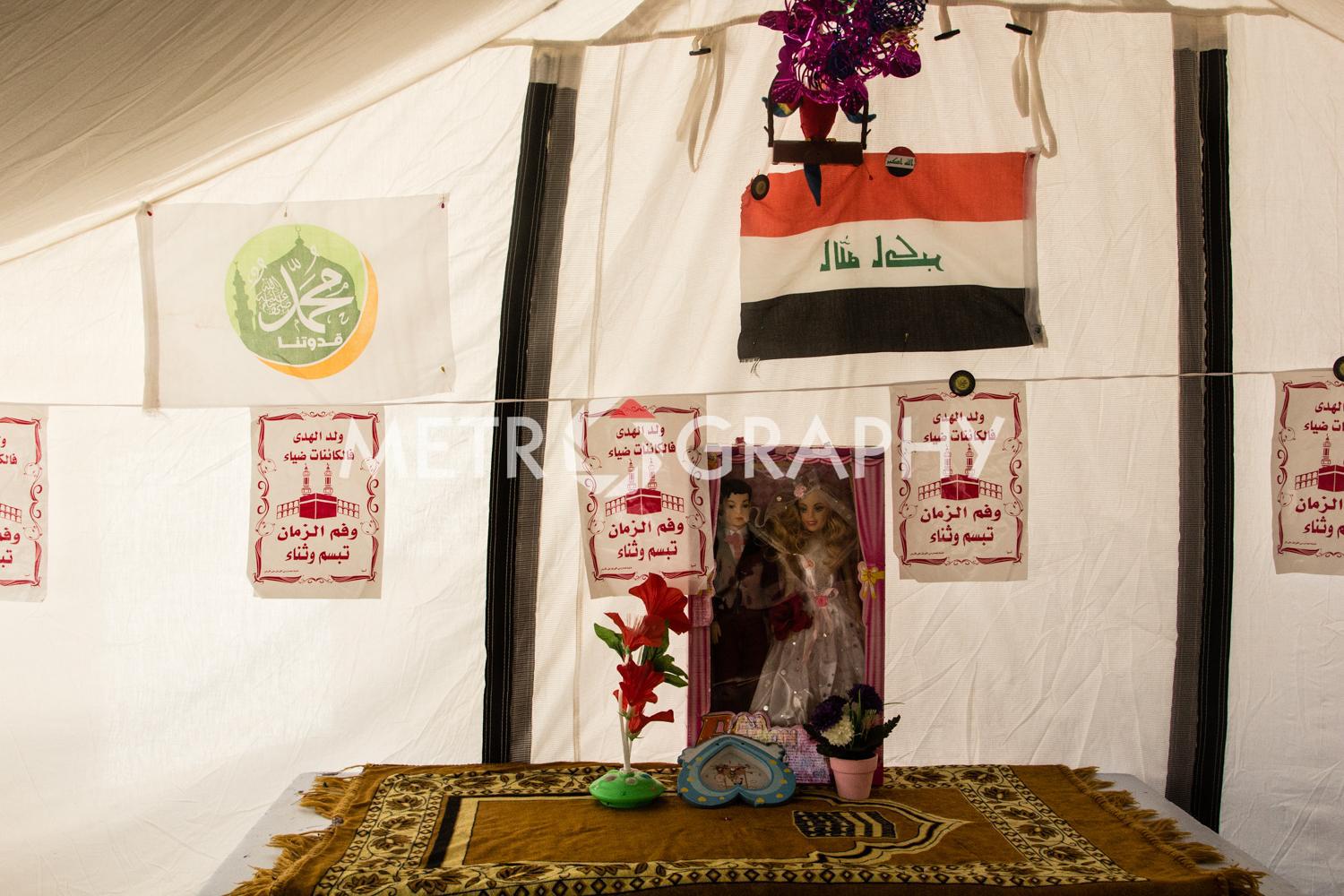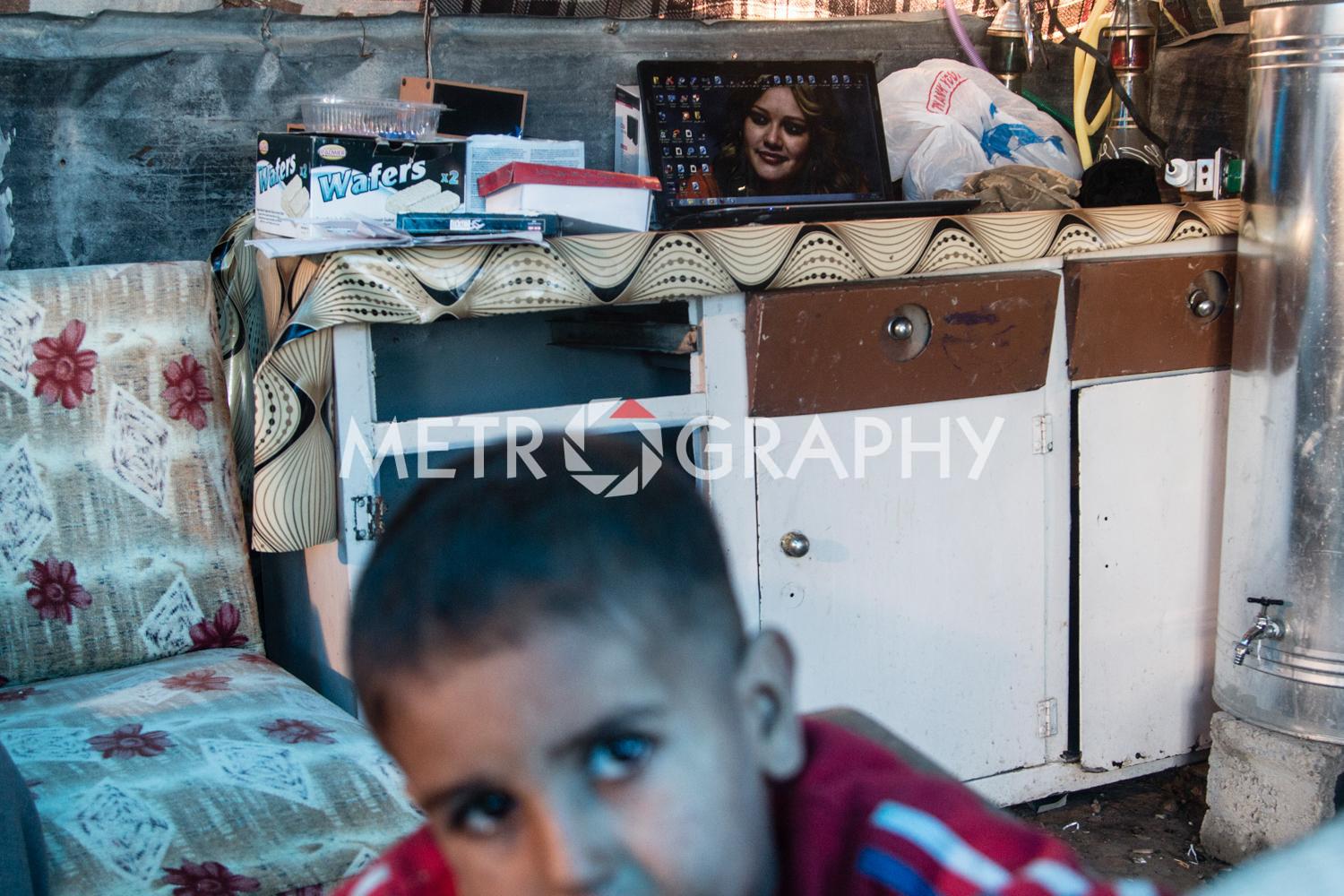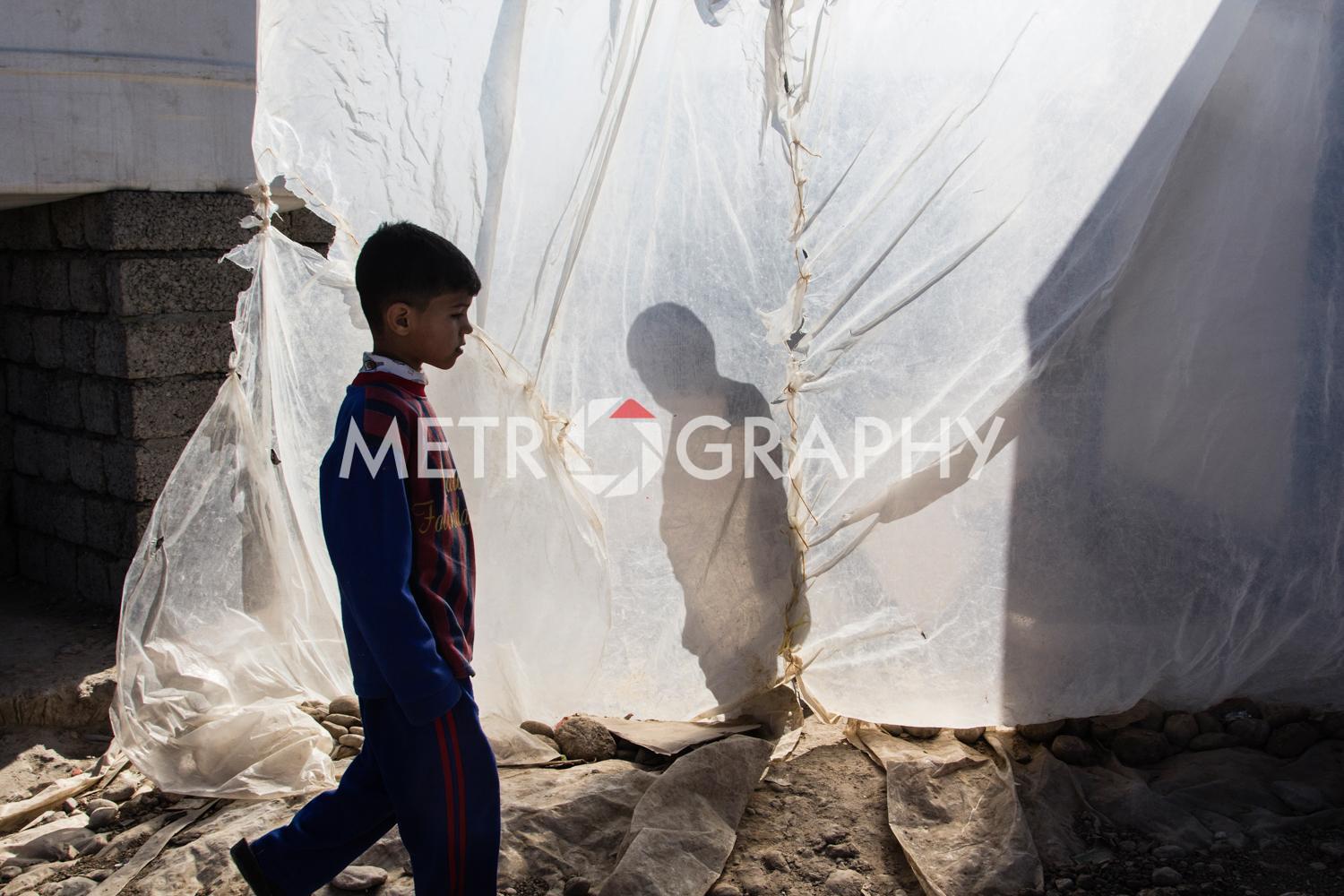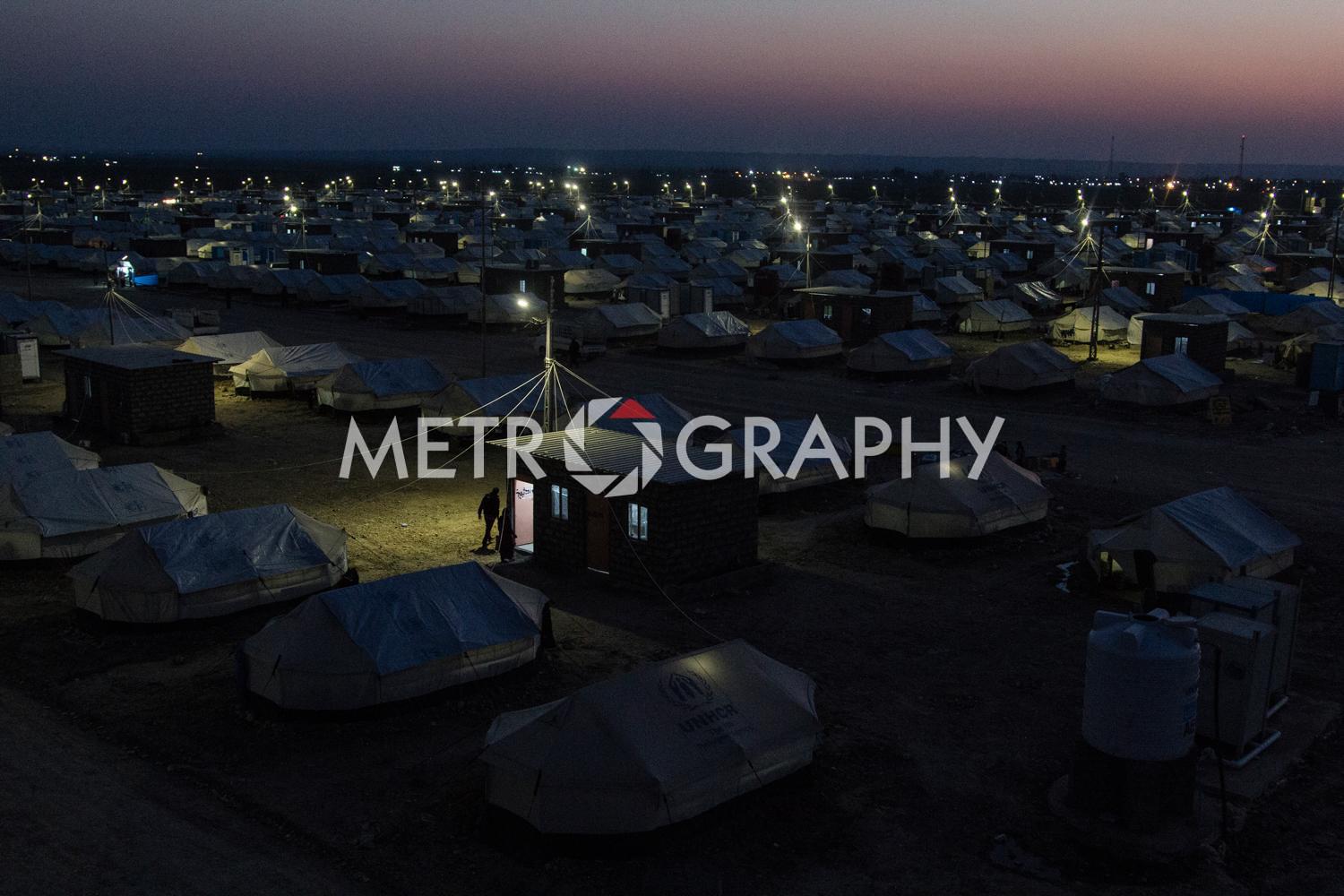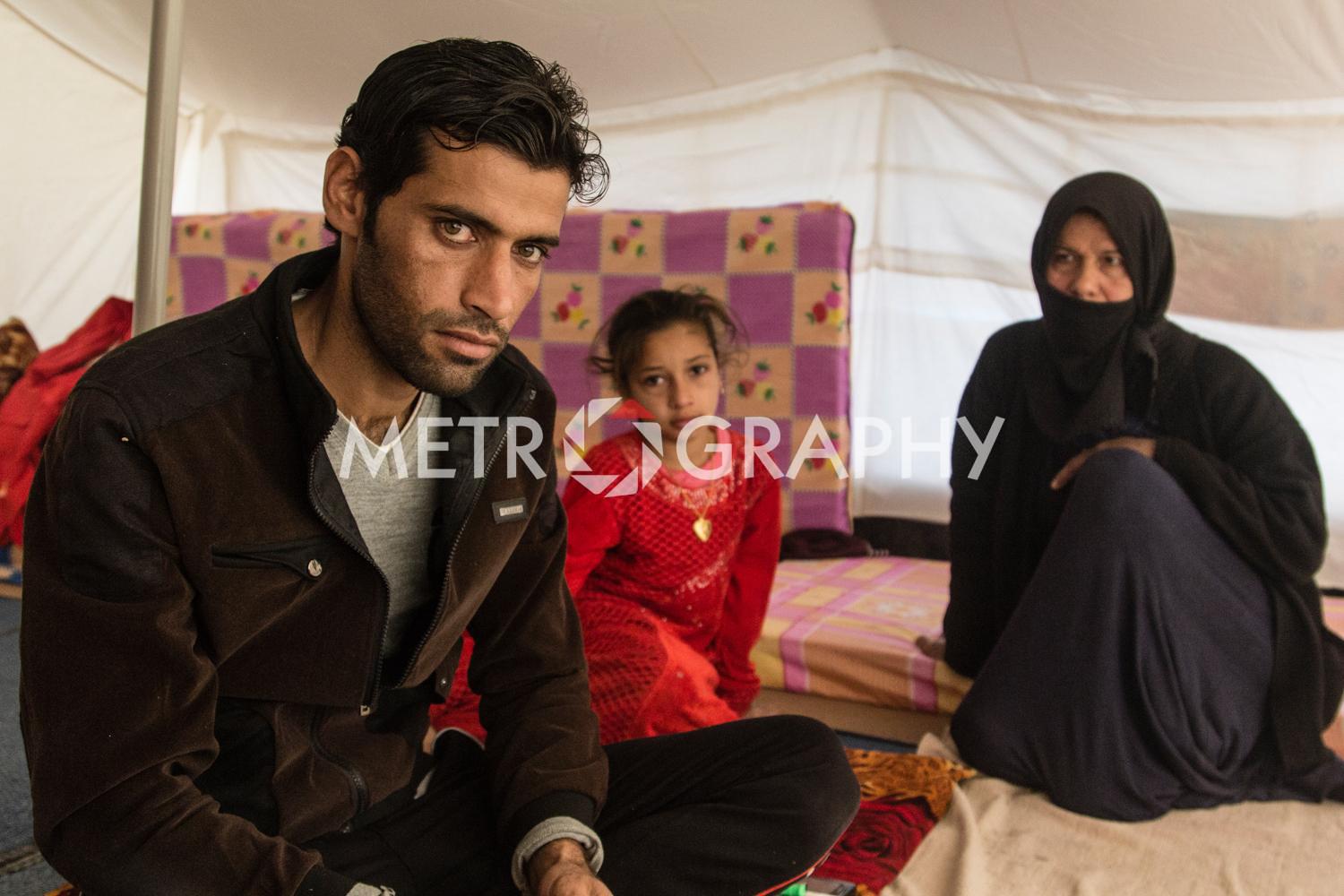By a cluster of tents, teenagers gather to watch Marwan carefully razor marine cuts in his makeshift barbershop. No teenager here wants to be mistaken for a ‘Daesh’ member. Not far away Adem’s children are playing with stones as he looks on worriedly, he is Sudanese and name-calling because of their black skin is common. Adem came to Iraq to avoid civil war and poverty but didn’t expect his adopted home town of Tikrit to be overrun by ISIS. Across the camp in Sulaiman’s tent, the mood is somber. Hazar lays out the ID cards that belonged to his dead children. They were killed by aerial bombardment. “We put a white flag on our convoy of cars to show we are civilians,” he says, dejectedly. They were also denied entry to relatively safe Kurdistan, as Sunni Arabs the Kurds view them as possible ISIS infiltrators.

